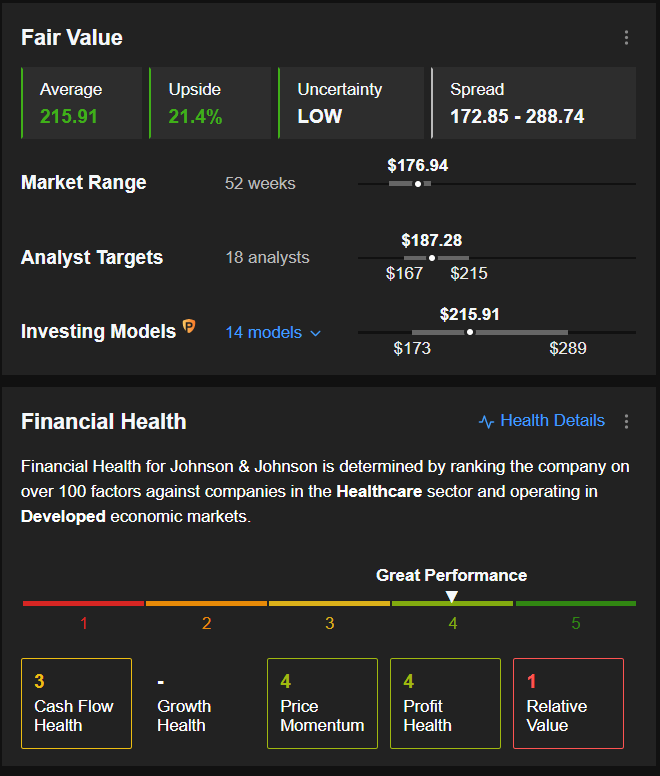- Healthcare stocks have been some of this year’s best performers
- Defensive, blue-chips with reasonable valuations and strong dividends tend to do well in a bear market
- Consider buying Bristol-Myers Squib, Merck, and Johnson & Johnson
Even as the S&P 500 has plunged into bear market territory, shares of the big pharmaceutical companies have offered a bit of a relief, outperforming the broader market by a wide margin.
While the benchmark index is off by a whopping 19.8% so far in 2022, the S&P Pharmaceuticals index is down just 8.4%.
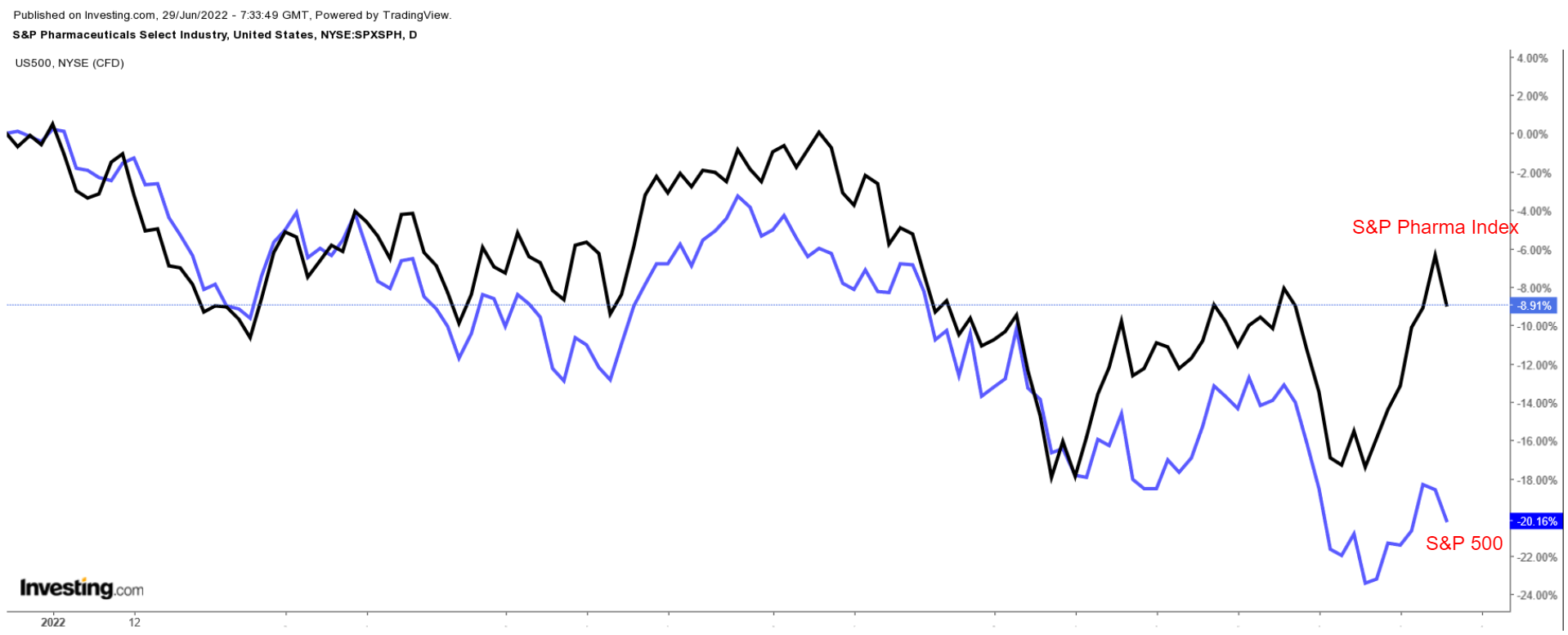
Investors have piled into defensive-minded healthcare stocks this year as the Federal Reserve hikes interest rates to combat surging US inflation, raising the likelihood of a recession.
As such, we used InvestingPro to scan the S&P 500 for the three most promising big pharma stocks heading into the second half of the year.
All three names offer dividend yields of close to 3% or above and are poised for further gains of at least 20%, making them attractive defensive plays amid the current bear market.
Bristol-Myers Squibb
- Year-To-Date Performance: +26.2%
- Pro+ Fair Value Upside: +27.6%
- Dividend Yield: 2.74%
- Market Cap: $167.5 billion
Bristol-Myers Squibb (NYSE:BMY) is one of the world’s largest pharmaceutical companies. Its core operations consist of discovering, developing, licensing, and marketing prescription medications and biologics in several therapeutic areas, including cancer, cardiovascular disease, diabetes, hepatitis, rheumatoid arthritis, and psychiatric disorders.
Shares of the thriving big pharma firm have been one of the standout performers in the booming healthcare space in recent months thanks to robust demand for its various blockbuster oncology, immunology, cardiovascular, and fibrosis drugs.
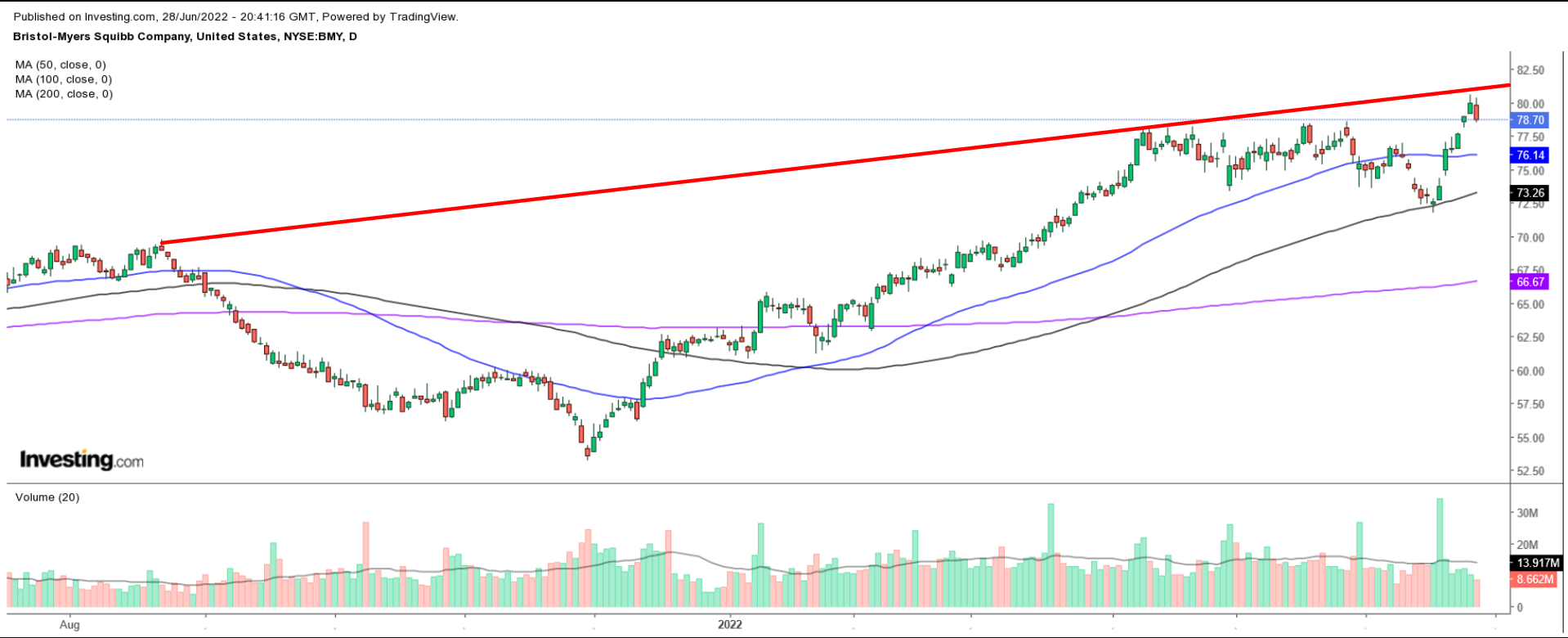
Year-to-date, BMY has gained roughly 26% to outpace comparable returns of the Dow and S&P over the same timeframe.
Despite hitting a record high of $80.58 on Monday we expect BMY to continue higher as the Federal Reserve’s aggressive rate hike plans fuel fears of a potential recession.
Shares in companies whose products and services are essential to people’s lives, such as healthcare, tend to perform well in environments of slowing economic growth and market turbulence.
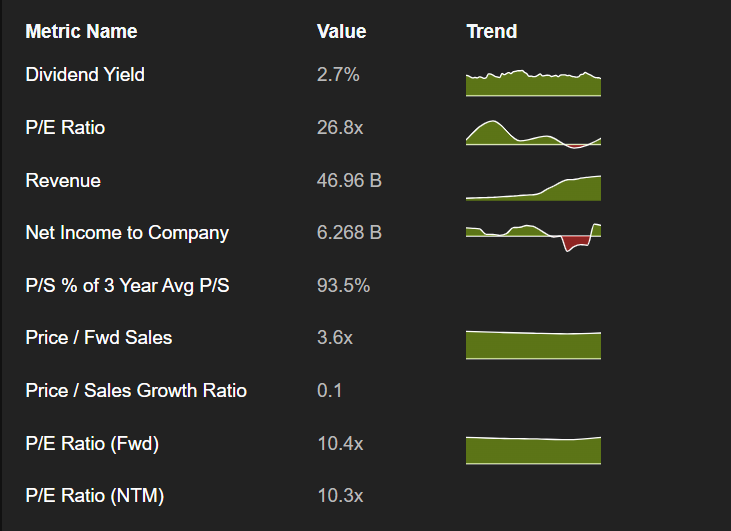
In addition, BMY, at just under 10 times forward earnings, are still cheap compared to notable peers including Eli Lilly’s 34 times, AstraZeneca’s 17 times, and AbbVie’s 13 times.
The pharmaceutical giant also offers a quarterly dividend of $0.54 per share, which implies an annual yield of 2.74%.
Indeed, Bristol-Myers Squibb stock is substantially undervalued according to the InvestingPro quantitative models and could see an upside of close to 28% over the next 12 months to its fair value of $100.43/share.
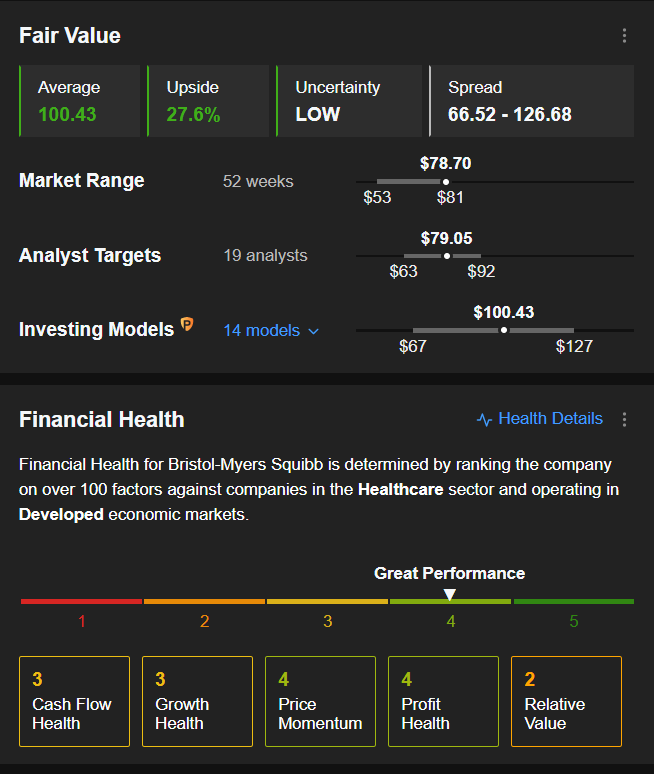
Merck
- Year-To-Date Performance: +19.9%
- Pro+ Fair Value Upside: +25.3%
- Dividend Yield: 3.25%
- Market Cap: $232.3 billion
Merck (NYSE:MRK) is a leading multinational pharmaceutical giant, involved in developing and producing a wide range of medicines, vaccines, biologic therapies, and animal health products.
It currently owns six blockbuster drugs or products, each with over $1 billion in revenue, including its new COVID-19 antiviral pill, as well as cancer immunotherapy, anti-diabetic medication, and vaccines against HPV and chickenpox.
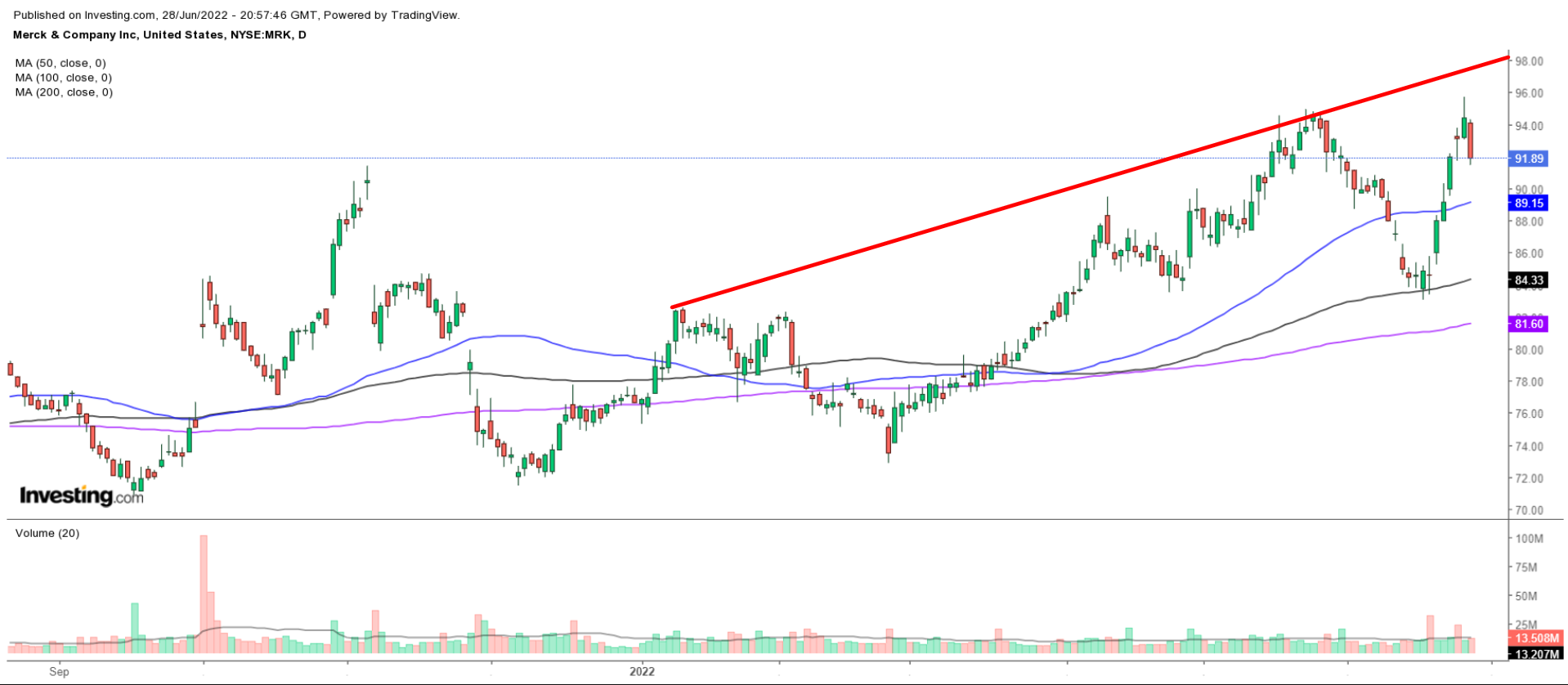
In a year of grim performance across the S&P 500, Merck’s stock has gained 19.9%, easily outpacing the comparable returns of the broader market amid the ongoing sell-off.
MRK stock hit a new record high of $95.72 on Monday; it ended Tuesday’s session at $91.89. At current levels, the Rahway, New Jersey-based pharmaceutical firm has a market cap of $232.3 billion.
Blue-chip dividend stocks with high free cash flow and low debt tend to thrive in a turbulent market as investors seek defensive companies with reasonable valuations at the expense of riskier, non-profitable, high-growth technology names.
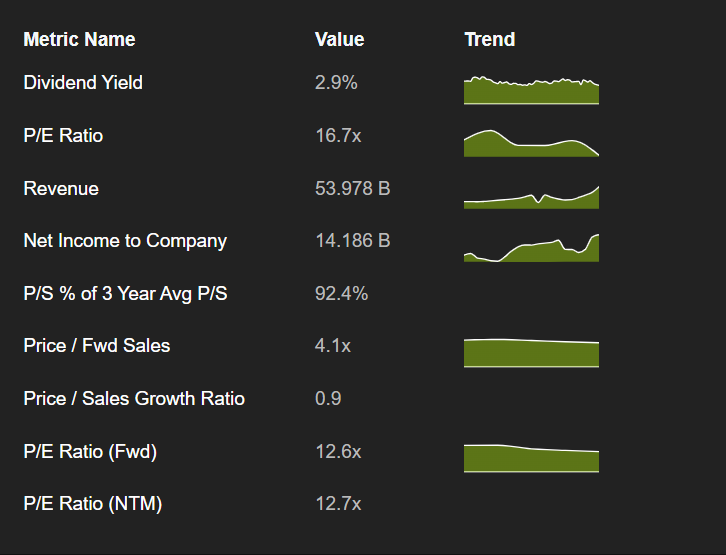
With a price-to-earnings ratio of 16.7, and an annualized dividend of $2.76 per share at a relatively elevated yield of 3.25%, Merck is a good option for investors looking to avoid further bear market volatility.
InvestingPro's quantitative models point to a gain of roughly 25% in MRK stock over the next 12 months, bringing shares closer to their fair value of $115.14.
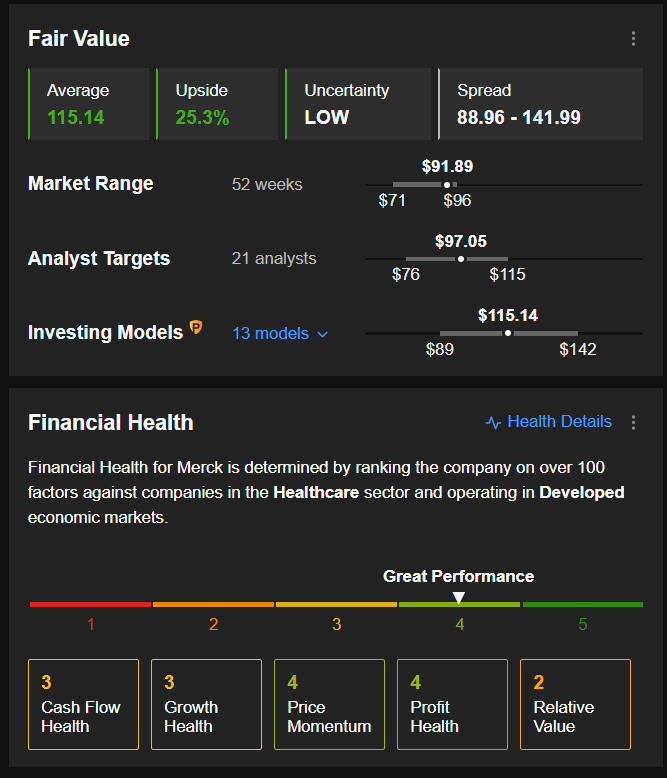
Johnson & Johnson
- Year-To-Date Performance: +3.4%
- Pro+ Fair Value Upside: +22%
- Dividend Yield: 2.55%
- Market Cap: $465.6 billion
Johnson & Johnson (NYSE:JNJ), one of the most valuable global pharmaceutical giants, is best known for its numerous medications, first aid supplies, and consumer products.
Some of its most recognizable brands—which are marketed and sold in over 175 countries—include Band-Aid bandages, Tylenol medications, Johnson's Baby products, Neutrogena skin and beauty products, Clean & Clear facial wash, and Acuvue contact lenses.
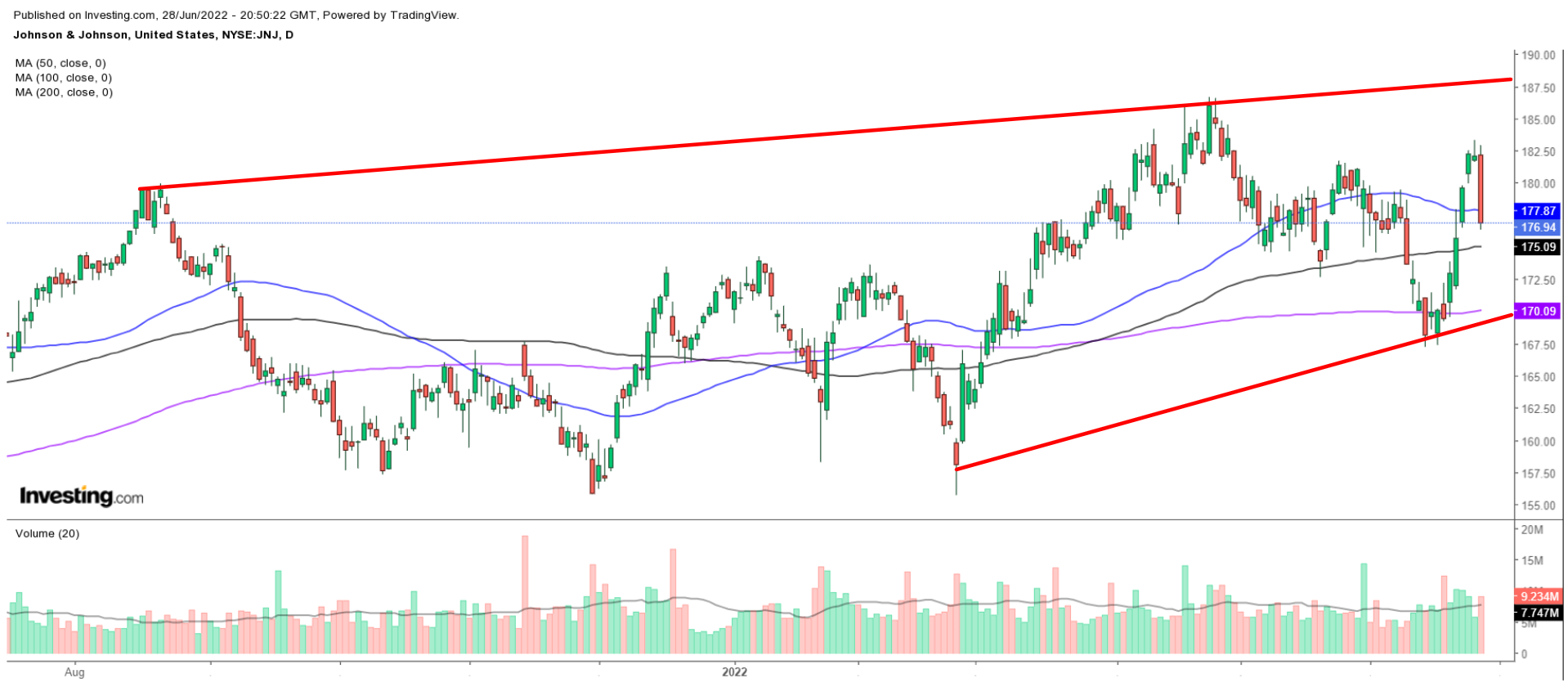
Shares of the New Brunswick, New Jersey-based well-diversified healthcare conglomerate have outperformed the Dow and S&P 500 by a wide margin in 2022, climbing almost 4% year-to-date.
JNJ, which hit an all-time high of $186.69 on Apr. 25, has been a relatively bright spot in challenging markets as investors seek high-quality, defensive, blue-chip companies with down-to-earth valuations.
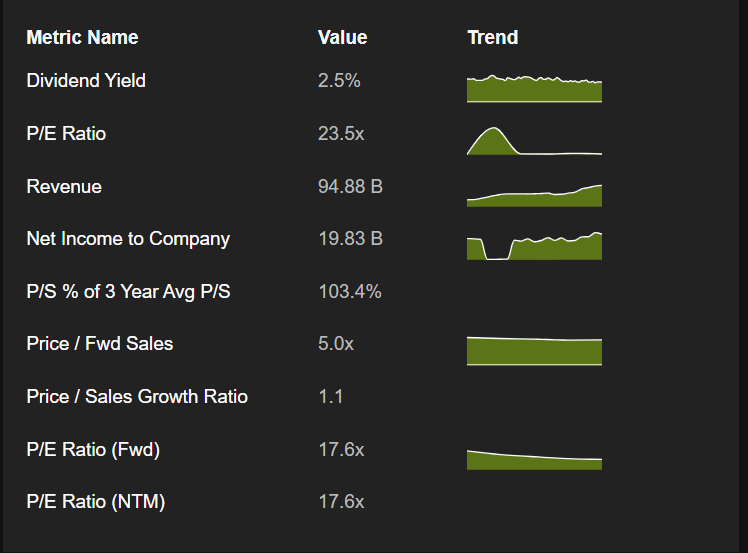
Johnson & Johnson’s relatively high annualized dividend of $4.52 and attractive yield of 2.55% enhances its appeal.
JNJ—one of only two U.S.-based companies that have a prime credit rating of AAA, which is higher than the U.S. government—has raised its dividend every year for 60 consecutive years, demonstrating the strength and resilience of its business.
According to a number of valuation models, the average fair value for JNJ stock on InvestingPro stands at $215.91, a potential 22% upside.
